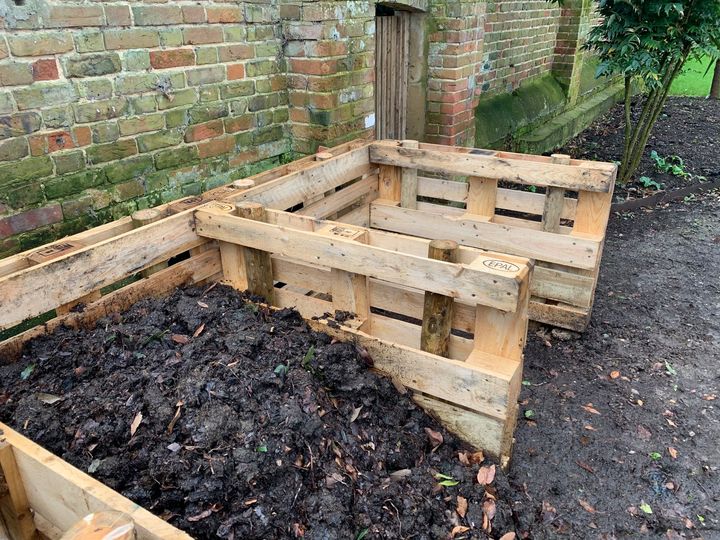Effective Homemade Compost Heaps: Tips from the GardenAdvice Team

Over the years, the GardenAdvice Team has discovered that the best compost heaps are those created using old builder pallets. By utilising one pallet as the base and securing three others around the edges with tree stakes, a highly efficient composting system can be established. In this article, we will share valuable insights on composting from the GardenAdvice experts, focusing on essential aspects such as maintaining the ideal environment for bacteria, fungi, and worms, promoting quick decomposition. By following these key composting points, you can create nutrient-rich compost while minimising effort.
Creating an Optimal Composting Environment
- Adequate Moisture – During the summer months, it is important to water the compost heap to ensure optimal moisture levels. To check if the moisture is sufficient, simply pick up a handful of compost and squeeze it gently; a few drops of water should drip from it.
- Supplementary Fertiliser – As you add materials to the compost heap, incorporate a compost activator or a fertiliser like Growmore to provide essential nutrients for the bacteria and fungi. This helps accelerate the breakdown of composted materials.
- Insulation for Winter – To maintain warmth during the winter, cover the compost heap with an old carpet or a similar insulating material. This protective layer will help retain heat and create an environment conducive to decomposition even in colder temperatures.
- Ensuring Air Circulation – If your compost heap consists mainly of grass clippings, periodically add a layer of straw or a similar material. This layer will help facilitate air movement within the heap, preventing compaction and promoting better decomposition.
- Addressing Specific Materials – If you frequently compost beech or oak leaves, incorporate garden lime while adding these materials. Garden lime raises the pH level, facilitating the breakdown of these particular components by the bacteria and fungi.
Efficiency and Time-Saving
Contrary to popular belief, turning the compost heap with a fork is not always necessary to achieve optimal compost. By diligently following the aforementioned guidelines, you can eliminate the need for turning unless, of course, you prefer to spend less time tending to your compost heap and more time enjoying your favourite local pub!
By constructing a compost heap using old builder pallets, you can create an effective and convenient system for recycling organic waste into nutrient-rich compost. The GardenAdvice Team emphasises the importance of maintaining an ideal environment for bacteria, fungi, and worms to facilitate the breakdown of materials. By implementing these key composting points, such as providing moisture, incorporating fertilisers, insulating the heap in winter, ensuring air circulation, and addressing specific materials, you can achieve excellent results without the need for frequent turning. Enjoy the process of composting while creating a valuable resource for your garden, all while saving time and effort.